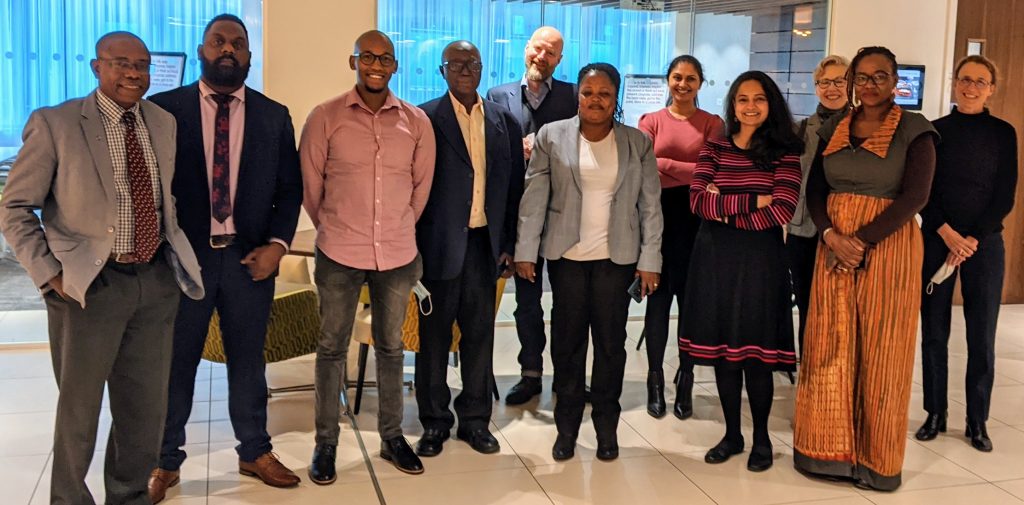7 June 2021
A slightly shorter version of this commentary was initially published on 27 May through the Climate Law Blog of the Sabin Centre for Climate Change Law at http://blogs.law.columbia.edu/climatechange/2021/05/27/should-countries-issue-binding-unilateral-declarations-on-ghg-emission-targets/
In 1978, during a phase of the Cold War when relationships between East and West began to relax, the United States and 4 other nuclear powers (China, France, the Soviet Union and the UK) made unilateral declarations granting security assurances to non-nuclear- weapon states. Speaking on behalf of the US president, the US Secretary of State at the time, Cyrus Vance, said:
“The United States will not use nuclear weapons against any non-nuclear–weapon State party to the Treaty on the Non-Proliferation of Nuclear Weapons or any comparable internationally binding commitment not to acquire nuclear explosive devices, except in the case of an attack on the United States, its territories or armed forces, or its allies…”
In the Nuclear Test case (Australia v. France), the International Court of Justice (ICJ) recognized the legally binding nature of such a unilateral declaration under international law, where the statement clearly indicates an intention for that state to be bound. The International Law Commission’s Guiding Principles applicable to unilateral declarations of States capable of creating legal obligations provide further general guidance on when such a statement by a state or government official can be considered legally binding.
The adverse effects of climate change are of course very different from the impact of a nuclear strike. It is, however, increasingly recognized that the planet is in a state of emergency – that human rights, biodiversity and the territorial integrity of many states are already affected or directly threatened. To avoid a “climate break down” the international community has to close the gap between countries’ collective emission reduction targets and the Paris Agreement’s goal to limit global warming to between 1.5 and “well below” 2°C.
The upcoming UN climate conference in Glasgow in November 2021 may be the last opportunity for parties to sufficiently up the mitigation targets contained in the Nationally Determined Contributions (NDCs) to meet this challenge. But while the Paris Agreement is formally a legally binding international treaty, it is generally recognized that (similar to many other multilateral environmental agreements) it only creates procedural obligations: to submit and maintain an NDC and subsequently report on performance. There is no obligation to actually meet a mitigation target.
Making emission reduction commitments part of a unilateral declaration would add a new element of substantive legal bindingness and also strengthen the robustness of states’ individual and collective efforts in responding to climate change. Those who argue that it is precisely the voluntary nature and flexibility of commitments under the Paris Agreement that encourages parties to make increasingly ambitious nationally determined contributions are of course likely to disagree with this assessment.
To make national mitigation targets legally binding some countries are integrating their pledges at the international level into domestic law. The European Union (EU) – one of the proponents of a more binding approach in the negotiations leading up to the Paris Agreement – has internal legislation that requires its member states to meet agreed contributions to an overall EU target. Germany has enshrined a 55 per cent greenhouse gas reduction target by 2030 in relation to 1990 levels in binding federal legislation (the “Klimaschutzgesetz”), and the UK has included the target to achieve net-zero carbon emissions by 2050 (100% relative to 1990 levels) in the 2008 Climate Act. Other countries that have or are planning to capture their mitigation goals in legislation include Canada, Chile, Japan and Mexico.
While a unilateral declaration may create additional peer pressure and accountability (in relation to other states but also domestic civil society) it does not guarantee subsequent compliance and the successful implementation of pledges. So maybe the most significant impact such declarations would have at this point in time is to show goodwill and rekindle trust between parties to the climate negotiations. If one party starts, it will be difficult for others not to follow and join a new path based on international solidarity and cooperation that has been invoked innumerable times during the Covid pandemic.




